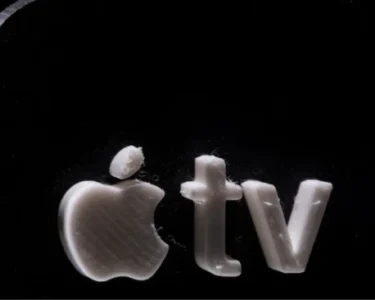In a fiery diplomatic standoff, Brazilian President Luiz Inácio Lula da Silva issued a forceful rebuttal to former U.S. President Donald Trump’s decision to impose a sweeping 50% tariff on all Brazilian exports to the United States. The move, which has sent shockwaves through global trade circles, threatens to strain relations between two of the largest economies in the Western Hemisphere.
Trump, in a sharply worded letter made public on Wednesday, accused Brazil of “unfair trade practices” and “insidious attacks” on free speech, while voicing staunch support for former Brazilian president Jair Bolsonaro, currently facing legal proceedings in Brazil related to an alleged coup attempt.
In response, Lula took to the social media platform X (formerly Twitter) to reassert Brazil’s independence and reject what he described as external interference in the country’s democratic and judicial institutions.
“Brazil is a sovereign nation with independent institutions and will not accept any form of tutelage,” Lula posted.
“The judicial proceedings against those responsible for planning the coup d’état fall exclusively under the jurisdiction of Brazil’s Judicial Branch and, as such, are not subject to any interference or threats.”
Trump’s Justification: “Witch Hunt” and Free Speech
The Trump administration’s justification for the tariff hike appears rooted not only in trade concerns but also in Brazil’s domestic politics. In his letter to Lula, Trump lambasted Brazil’s judiciary for prosecuting Bolsonaro, describing the trial as a “witch hunt” and an “international disgrace.” He accused Brazil’s Supreme Court of issuing “secret and unlawful censorship orders” targeting U.S. social media companies, in what he characterized as an assault on the free speech rights of American citizens.
“I knew and dealt with former President Jair Bolsonaro and respected him greatly. The way that Brazil has treated him is unacceptable,” the letter read.
“Starting on August 1, 2025, we will charge Brazil a tariff of 50% on any and all Brazilian products sent into the United States,” Trump declared, warning that even transshipped goods would not be exempt.
The tariff, separate from existing sectoral tariffs, represents one of the most aggressive trade moves in recent memory and has drawn widespread concern from economists, trade bodies, and diplomatic observers.
Lula Pushes Back With Facts and Reciprocity
Unfazed by the aggressive tone of the Trump letter, President Lula countered Trump’s claims with a data-backed argument. Citing U.S. government statistics, Lula asserted that the U.S. has actually enjoyed a trade surplus with Brazil totaling $410 billion over the past 15 years.
“The claim regarding a U.S. trade deficit with Brazil is inaccurate,” Lula stated.
“Any unilateral tariff increases will be addressed in accordance with Brazil’s Economic Reciprocity Law. Sovereignty, respect, and the unwavering defense of the interests of the Brazilian people are the values that guide our relationship with the world.”
Brazil’s Economic Reciprocity Law gives the government the authority to impose equivalent countermeasures if foreign nations apply unfair trade restrictions.
Political Subtext and Bolsonaro’s Shadow
At the heart of the controversy lies a deeper political undercurrent: the treatment of former Brazilian president Jair Bolsonaro, whose populist and right-wing tenure earned him strong support from Trump. Bolsonaro, currently facing prosecution for his alleged role in inciting an anti-democratic movement after losing the 2022 election, has become a flashpoint in Brazil’s political landscape.
Trump’s open backing of Bolsonaro, especially in a trade context, has drawn criticism for blurring the lines between domestic legal proceedings and international economic policy.
“Trump is effectively using tariffs as political leverage to interfere in Brazil’s judicial system,” said João Martins, a political analyst based in São Paulo. “This is a dangerous precedent.”
Global Implications and Possible Fallout
The tariff announcement has set off alarm bells in international trade forums. Brazil is one of the world’s largest exporters of steel, soybeans, ethanol, and beef — all of which could be affected by the new duty. Industry groups in both nations are warning of significant disruptions to supply chains and price volatility.
Brazilian exporters fear losing a crucial market, while U.S. importers are concerned about rising costs. “This move is likely to backfire,” warned a senior executive from Brazil’s National Confederation of Industry (CNI). “It penalizes both sides, especially during a time of global economic uncertainty.”
Diplomatically, the rift may complicate broader Latin American cooperation efforts, as Brazil seeks to play a larger role in regional stability and trade.
Lula’s Stand: Sovereignty First
Lula’s response — measured yet firm — has earned praise at home and in parts of the international community. By framing the issue as one of national dignity and sovereignty, rather than simply retaliating, he has positioned Brazil as unwilling to bend under external pressure.
With the tariff set to take effect on August 1, the coming weeks are likely to see intense back-channel negotiations and possible appeals to the World Trade Organization (WTO).
Whether the dispute escalates into a full-blown trade war or is resolved through diplomacy, one thing is clear: Brazil is not backing down. President Lula has drawn a line in the sand — one that reflects not just the defense of Brazil’s economy, but of its democratic institutions and global standing.







